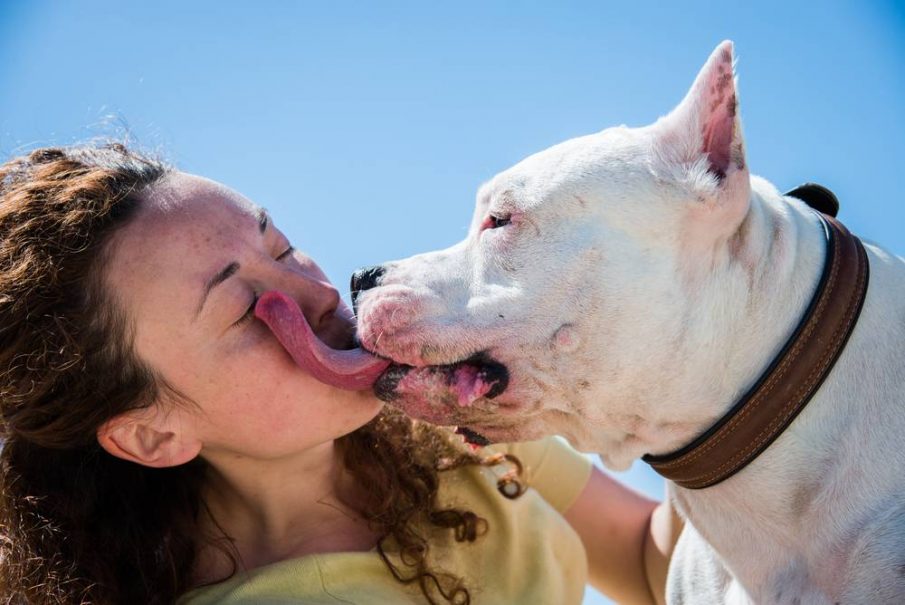Before taking the leap and welcoming a new canine companion into your home, you must first consider the pros and cons of owning a pet. Although the process is an exciting one, dogs need a lot of care and attention.
Making a quick, in-the-moment decision is not something that is advised when it comes to providing a new home for a dog – or any animal. The decision is never an easy one to make, so creating a list of pros and cons is a great place to start before buying a dog.
There are most likely a lot of worries and questions racing through your mind, so here we discuss the top things to consider before buying a dog.
Adopt Or Shop?
Probably one of the biggest concerns on your mind is whether to shop for a dog or adopt one.
There are many arguments about what the best moral option is, with a lot of people suggesting that adopting a pet is the best option. However, there’s no straightforward answer to this and it’s entirely your decision.
With this said, we discuss some of the positives and potential downfalls associated with adopting or shopping for your new furry friend.
Adopting
Knowing that you’ve rescued an animal from a shelter and given it the fresh start in life it deserves is a rewarding feeling. Some dogs will have had a deprived or difficult life before going to the shelter, so providing them with their forever home is a noble cause.
However, it isn’t as easy as just rescuing a dog from the shelter and bringing it home. Rescue dogs can come with their own personal challenges, since many have been abused or abandoned by their previous owners. Although a lot of dogs who are in rescue shelters are past their infant years, this doesn’t mean they won’t require more house training. They may need to re-learn going outside when they need the toilet, or not to chew up furniture in the house.
They could also suffer from anxiety, especially in an environment they’re not familiar with. So, teaching them is the best way to cope with this, and providing them with comfort and reassurance is important and requires a lot of time.
Shopping
Probably the most popular reason to shop for a furry friend is being able to raise it from a puppy to a fully-grown dog. You can be with it all the way through its life. Watching it grow and develop into a bright and loving friend that brings joy to the family is a rewarding feeling. Furthermore, being able to train it to do all the fun tricks that entertain both you and your pooch is something that never gets old.
Although this sounds like an exciting concept, shopping for a puppy rather than rescuing one does have its cons. One of the major downsides is accidentally buying from puppy mills. This is when breeders use dogs for the simple purpose of making a profit. Aside from the fact that puppy mills are illegal in a lot of places, there are also big concerns over the conditions the puppies are kept in – often cramped and uncomfortable cages. The more people that unintentionally buy from puppy mills, the more profits are made, which keeps the mills open and running. This can be avoided by investigating your breeder’s credentials thoroughly. Ideally, you should also visit their house to see the mum and puppies beforehand.
 How Much Does Raising A Dog Cost?
How Much Does Raising A Dog Cost?
Other than the potential upfront cost of buying a dog, you have to consider before your purchase the additional costs that owning a dog entails throughout its life.
Usual costs for raising a dog include:
- The initial purchase
- Dog food
- Toys, leads and bedding
- Training and walking
- Grooming fees (regularity depends on the breed)
- Vet fees
- Insurance fees
It’s vital to take out pet insurance when you buy a dog. The price of this can vary depending on the breed. One pet specialist company, VioVet, collected data to compare the cost of each breed and their average grooming, vet, and insurance prices. This allows us to understand the average monthly cost of specific breeds and owning a dog generally.
For example, Poodles, Boxers, and Welsh Corgis are some of the breeds with the highest monthly insurance bill. They can average at £77.42 per month. Meanwhile, insurance for Pomeranians, Chihuahuas, and Jack Russells can cost only £39.75 per month. As for vet consultation fees, they cost £60 on average across all breeds, while dog walker fees average at £76 per month.
Another cost you might not think will add too much to your monthly spending is food for your dog. However, this can be quite a hefty sum. Depending on what dog breed you have, the price of food can vary – with smaller dogs requiring less food. However, data finds that the average spends on dog food per month can range from £14.74 to £39.03.
Overall, an Irish setter was the most expensive dog breed, costing around £41,728 over the dog’s lifetime. Meanwhile, the Chiweenie costs the least. Keeping this small dog would only set you back £17,528 over the course of its life.
You’ve got the extra one-off payments to think about too – such as a flea bomb if this is ever required to treat a flea infestation your dog has brought into your home, as well as new toys or leads.
How Much Time Do Dogs Require?
A dog’s early years are the most important when it comes to teaching them the basic house-training rules. To do this successfully, a lot of time, energy, and patience are required. When you first bring your pup home, being able to spend a week or two with them will help you create a special bond and also help them gain trust and reassurance with you.
When it comes to basic socialising and training, you need at least two hours a day dedicated to this. During the early stages especially, finding the time to socialise them with other dogs and training them on your basic household rules is essential. So, if you think you don’t have the time to do this, then it might not be the best time to buy a puppy.
As for their exercise needs, this varies between a dog’s breed and age – a dog at its peak will need more exercise than a puppy or an older dog. Even then, some dogs will never relent and some dogs don’t want to leave their spot in the bed — it can be a mixed bag. Choosing a specific dog breed can help fit walks around your lifestyle. German Shepherds, Spaniels, Pointers, Huskies, and Retrievers are among those that require the most exercise. However, if you feel you haven’t got much time to spend walking your dog, the likes of Pugs, French Bulldogs, Pomeranians, and Yorkshire Terriers require just a short walk every day.
Both shopping for and adopting a dog come with physical and financial challenges. Whilst welcoming a new pooch into your home is an exciting concept, it’s definitely something that requires a lot of time and thought before making the final decision and buying a dog!






